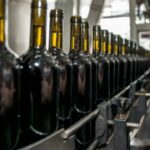
The beverage industry, particularly the carbonated drinks sector, thrives on innovation. As consumer demands shift towards higher quality, sustainability, and efficiency, bottling line advancements play a crucial role in meeting these expectations. Modern bottling lines not only enhance production capabilities but also streamline processes, reduce waste, and improve overall product quality. This article explores the latest technologies in bottling lines, innovations that drive efficiency and sustainability, and real-world case studies that highlight the successful application of these advancements in the soft drink industry.
Latest Technologies in Bottling Lines for Carbonated Beverages
In the realm of carbonated beverages, the integration of advanced technologies into bottling lines has transformed production. One significant advancement is the automation of bottling processes. Automated systems are now capable of handling various tasks, from filling and capping to labeling and packaging. This not only speeds up production rates but also minimizes human error, ensuring consistent quality across each batch.
Quality control has also seen substantial improvements through technological advancements. Modern bottling lines often incorporate sophisticated sensors and monitoring systems that detect any inconsistencies in product quality. These systems can assess fill levels, monitor carbonation levels, and even detect leaks, ensuring that only products that meet rigorous quality standards reach consumers.
Additionally, eco-friendly practices have become integral to the design of bottling lines. Many companies are now using lightweight bottles and recyclable materials, significantly reducing the environmental footprint of their operations. These efforts resonate with environmentally conscious consumers and contribute to overall sustainability goals.
Innovations Improving Efficiency and Sustainability
The drive for efficiency in bottling processes is ongoing, with many companies exploring innovative solutions. One such innovation is the use of energy-efficient machinery. Advanced bottling lines are designed to consume less power while maintaining high output levels. This not only lowers operational costs but also reduces the overall environmental impact of production.
Another notable trend is the implementation of water-saving technologies. Water is a critical resource in the beverage industry, and advancements in bottling lines often include systems that recycle water used in the cleaning processes. This dramatic reduction in water usage aligns with global sustainability efforts and can lead to significant cost savings over time.
Some industry leaders have adopted modular bottling systems, which allow for flexibility and scalability in production. These systems can be easily adjusted to accommodate different bottle sizes or types, enabling manufacturers to respond quickly to changing market demands without significant investment in new equipment.
Case Studies of Successful Bottling Line Advancements in the Soft Drink Industry
To illustrate the impact of bottling line advancements, let’s examine a few case studies from the soft drink industry. One prominent example involves a leading carbonated beverage manufacturer that upgraded its bottling line to incorporate automated filling and capping systems. This change resulted in a 30% increase in production efficiency and a notable reduction in product wastage due to the precision of automated filling technology.
Another case study highlights a company that implemented an eco-friendly bottling line utilizing recycled materials and energy-efficient machinery. This initiative not only improved their sustainability profile but also attracted a new segment of environmentally conscious consumers, leading to a boost in brand loyalty and market share.
Finally, a beverage company that adopted modular bottling technology reported increased operational flexibility. By being able to quickly switch between different product lines, they managed to reduce downtime and meet fluctuating consumer demands while maintaining high-quality standards.
In conclusion, the advancements in bottling lines for carbonated beverages are vital in shaping the future of the beverage industry. From automation and quality control to sustainable practices and innovative solutions, these developments enhance efficiency and meet consumer expectations. As the industry continues to evolve, bottling line advancements will undoubtedly play a key role in driving growth and ensuring the production of high-quality beverages that resonate with consumers.
For those interested in exploring cutting-edge bottling solutions, bottling line advancements are essential to consider, as they can significantly improve operational efficiency and product quality.

